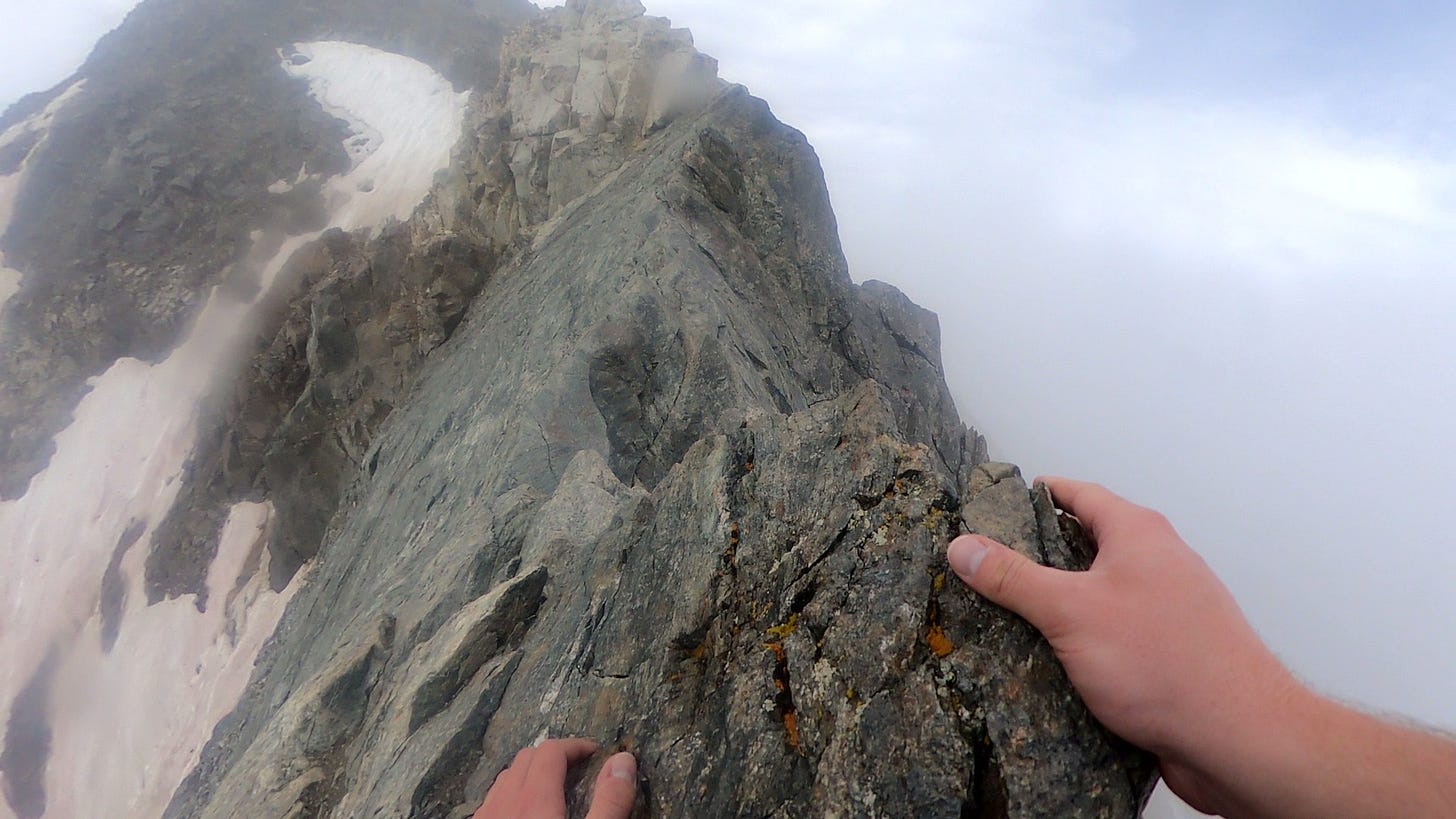Lifesaving Advice for Your First Trip to the Mountains
Why the most experienced tend to get themselves into the most danger out in the wilderness, and the one thing beginners are actually better at that saves them.
I sat on my Wrangler’s back bumper, panting and out of breath. Just a few months prior, I’d been in Marathon-running shape. But that was in flatland Florida. My new Colorado apartment stood on ground more than a mile above sea level. The air, thin and dry.
The simple task of carrying boxes up the stairs taxed me more than I’d like to admit. While I was summoning the strength to lift my microwave out of the back of my car, one of my new neighbors waved me over.
A Welcome Warning
He worked in his garage — just across the parking lot — tall, bearded, and covered in grease. Dan introduced himself with a firm handshake, told me he liked my Jeep, and warned me about my nosy downstairs neighbor who drives a white four-door Sahara.1
Dan’s own rig is a Frankenstein’s monster, welded together beneath the façade of a beat-up Liberty. A metal-worker by trade, Dan explained he custom-builds impressive upgrades for his hulking vehicle during the week. On the weekends, he takes them on difficult off-road trails.
“You get up into the mountains back where you’re from?” He asks.
I shrug. “I’ve spent a good bit of time in the Catskills.”
“Catskills?” He scoffs. “Those are hills. These are mountains.” Dan gestured to the west, where the towering rocky mountains always dominated the horizon. Even in summer, their peaks remained snowcapped.
“They’re breathtaking,” he elaborated. “Plenty of fun. Plenty of adventure up there. But you have to respect the mountains. Or they’ll kill you.”
Welcome to Colorado, I suppose.
Subscriptions are free, support independent writing, and ensure you never miss an edition.
The More You Know, the Deeper You Go
There’s a well documented trend in backcountry search and rescue: the people with the most experience tend to get themselves into the most trouble. But how can that be?
Beginners carry a timid appreciation for safety, born from a lack of confidence. New climbers are sure to triple check their knots, and will think twice before trying a shaky hand hold. Seasoned pros may skip safety checks altogether. I mean seriously, it’s not like you second-guess yourself when you’re tying your own shoes.
Right?
Alas, everyone makes mistakes.
Most of us need a good scare for this lesson to stick, and I’m lucky enough to have learned without injury.
The issue comes from a false conflation with having knowledge and using it. We tend to think of experience as an invisible shield from harm.
Knowing the best place to stand in a thunderstorm doesn’t ward off lightning
Knowing proper belay technique doesn’t protect your partner from falls
Knowing how to bear-proof your camp doesn’t magically keep animals at bay
Knowing means very little if you don’t put that knowledge to use, ideally before you run into trouble.
Send this to your friend before their next trip to remind them to plan ahead!
I can get Myself out of this
There’s a dangerous mindset of complacency that comes from mastery. Why bother taking precautions if you know how to save yourself from any resulting problems?
As I've previously written: when you play the game this way, your number is bound to come up eventually.
This topic has interested me for a while because it highlights a bit of a blind spot in the outdoor community. There’s a great deal written about safety surrounding advanced and expert level expeditions. But for entry level and intermediate hikes, the tone is far more casual, and the quality of coverage drops off.
This drove my inspiration for creating Cole’s Climb: to fill a content void and treat all mountain adventures with the detail, care, and respect they deserve. I encourage you to do the same — it could wind up saving your life.
I Want to Hear From You
Knowledge is the most powerful safety tool we have. Were you even in a situation where you were saved by your own quick and calm thinking? Leave a comment below!
Sorry, this one’s an in-joke just for the Jeep community.




Yes, but it happened in a blink of an eye and I can't remember how I did it. (And I was in a Jeep!)
Welcome to the Colorado air, Mitch 😂 I have the opposite problem. Whenever I go to places that are of lower altitude, the air is too thick and therefore makes it hard to breathe lol.